The German government is aiming to legalize cannabis for adult use. Our timeline shows when cannabis for recreational purposes could become legal in Germany and which hurdles the German government will have to overcome.
Last update: April 2024 (Subject to alterations)
Germany is planning to legalize cannabis – but the plan of the German government of SPD, Bündnis90/Die Grünen and FDP is complex and comprehensive. This is because many aspects must be taken into account in order to legalize the cultivation, acquisition and consumption of cannabis for adult use. Various ministries are involved in the project, from the Federal Ministry of Health to the Ministry of Justice and the Ministry of Agriculture. In addition, Germany must also coordinate its plans with the EU Commission. All of this takes time and will extend over several years. Our timeline shows when cannabis could become legal and which hurdles the German government has to overcome. The overview also shows which steps are necessary and when they will happen in order to realize the complex procedure from the conclusion of the coalition agreement at the end of 2021 to the first possible legal sale of cannabis. The German government adjusted its plans in April 2023 and is now relying on a so-called two-pillar model, in which decriminalization is to take place first, before legalization is to be tested in model regions in Germany in a second step. Whether the full project can be implemented as envisaged in the process is not yet certain at the current time.

The newly elected German government of SPD, Bündnis 90/Die Grünen and FDP announces in the Coalition Agreement¹ 2021-2025 the legalization of cannabis for recreational adult use.
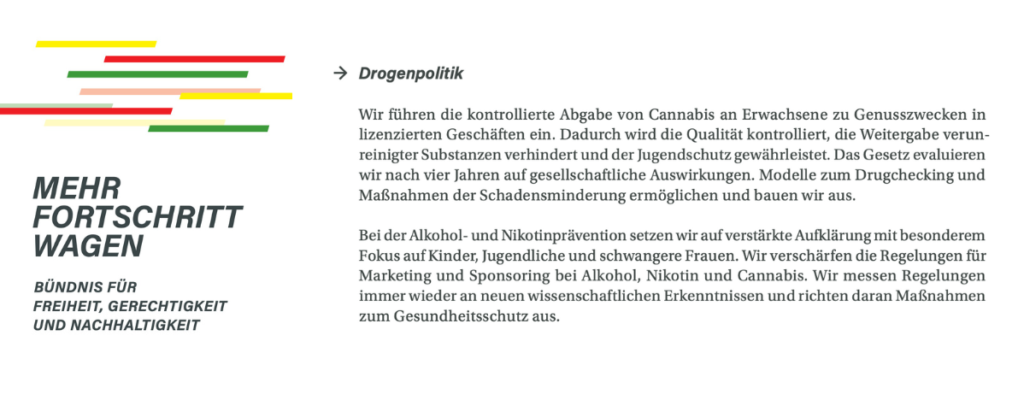
Start of the consultation process with more than 200 experts in June 2022, led by the Federal Government Commissioner for Addiction and Drug Issues.
The first Cornerstone Paper with key issues² is published by the German government in October 2022, there-by providing the basis for draft legislation.
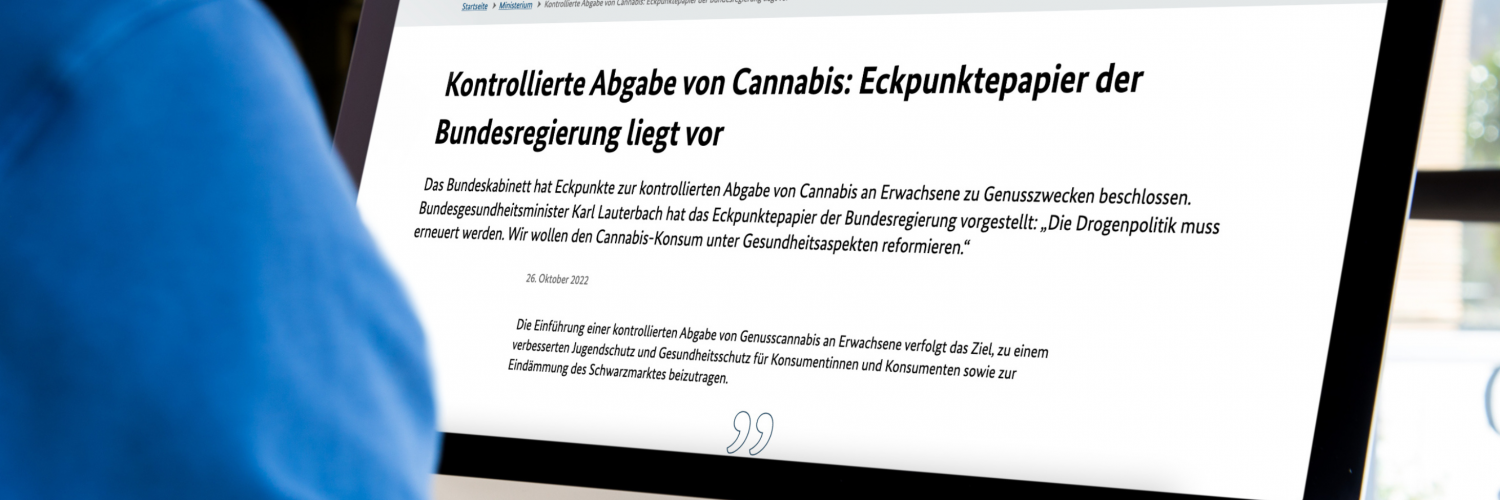
Start of drafting the bill³ by federal ministries and commissioning of a medical-scientific expert report.
In April 2023, the German Federal Minister of Health, Karl Lauterbach, and the Federal Minister of Agriculture, Cem Özdemir, presented revised key points, which provide for legalization in a so-called Two-pillar model:
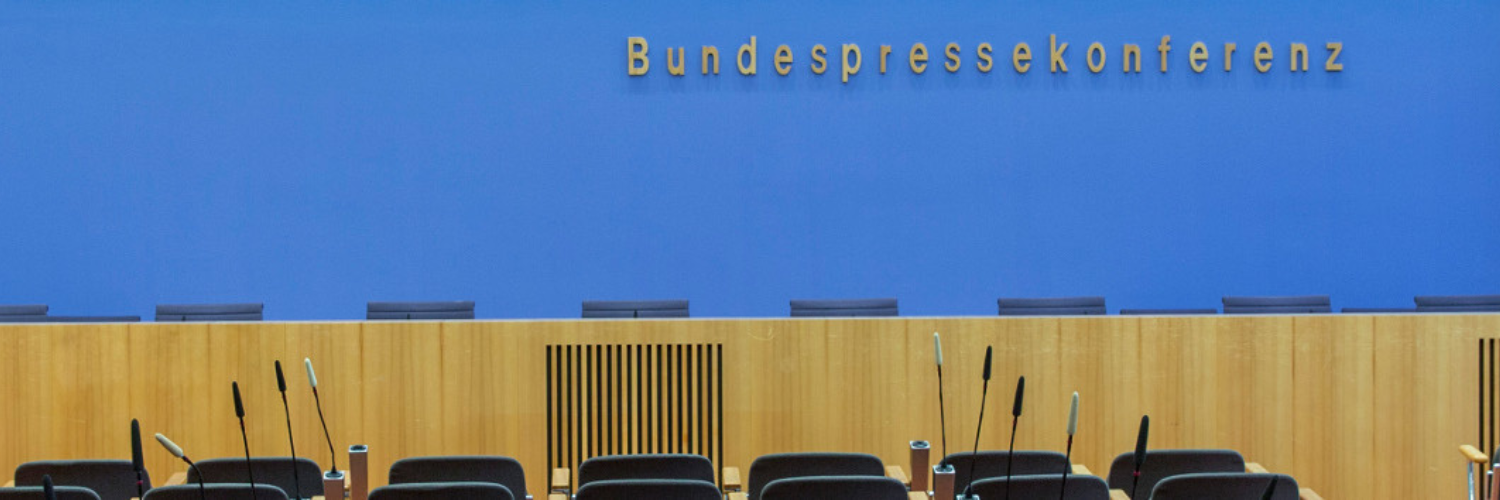
Publication of the medical-scientific expert report commissioned by the Federal Ministry of Health from the Institute for Interdisciplinary Addiction and Drug Research in Hamburg: “The goal of legalization should be to create a legal supply for people who are currently using, without increasing the attractiveness of starting to use.”

In July 2023, the German Federal Constitutional Court decided that a punishable ban on cannabis is constitutional.
The three local courts, which had previously deemed the almost 30-year-old ban no longer constitutional and had appealed to Germany’s highest court, had “not provided sufficient justification as to why it was necessary to deviate from the earlier constitutional court decision today”, the constitutional judges said. Therefore, the court had declared the submissions of the district courts inadmissible.
As early as 1994, the Federal Constitutional Court had conceded that the damage to health from moderate cannabis consumption was to be regarded as rather slight; in this respect, the district courts had not presented anything new.

With regard to the first pillar, which provides for private and communal, non-profit self-cultivation, the draft bill³ (so-called “Referentenentwurf”) was presented in July 2023. The following cabinet draft was subsequently decided in mid-August 2023, which was then the start of the parliamentary procedure that includes hearings in the German Bundestag with internal & external experts.
An approval of the bill by the Bundesrat (upper house of the German parliament) is not needed. Nevertheless, the Bundesrat will be consulted in the regular procedure, as no federal law comes into force without being referred to the Bundesrat.
The parliamentary process in a nutshell:
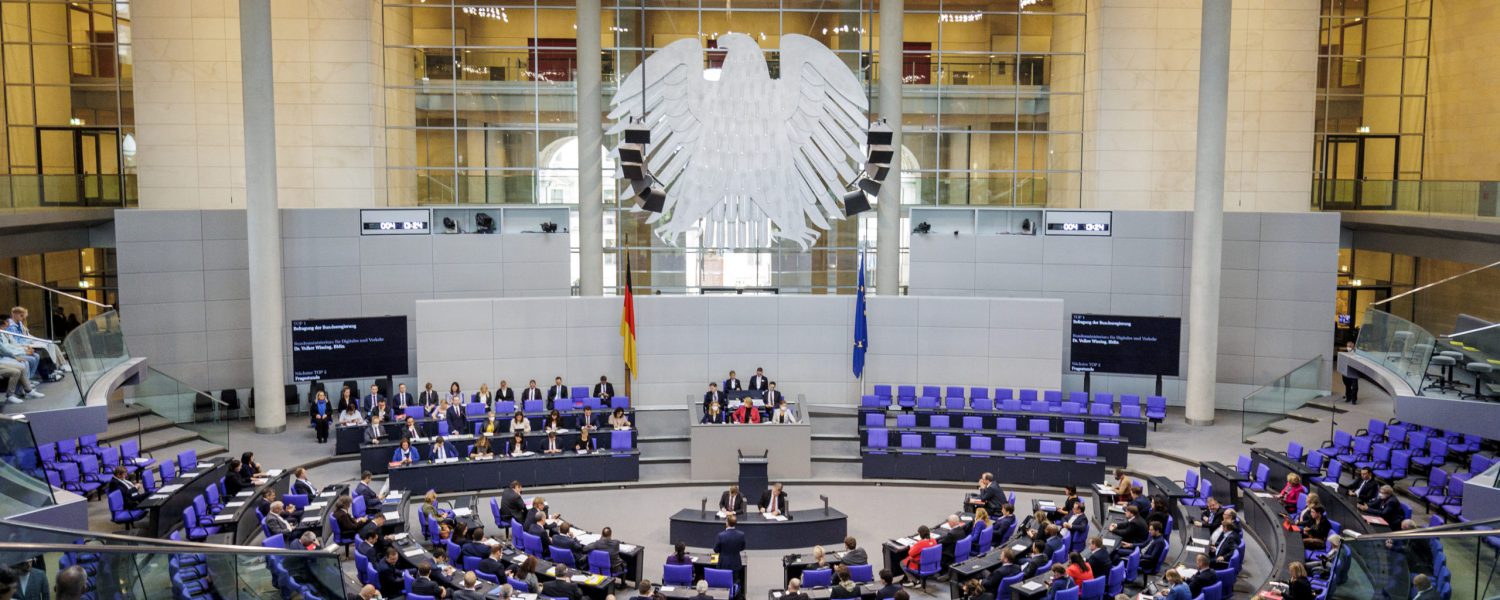

Pillar 1 came into force on April 1st: Decriminalization of cannabis use, home cultivation and operation of Cannabis Clubs is now allowed (publication in the Federal Law Gazette⁵).
Start of the licensing process for Cannabis Clubs as of July 1st 2024.
The draft law on the second pillar (regional model projects with commercial supply chains) shall be introduced “following pillar 1”.
Afterwards: Potential submission of the draft law to the EU Commission and the start of the EU notification process⁴. According to (EU) Directive 2015/1535, it will be checked whether national law is in line with EU law.
During this period: so-called standstill period for implementation of the law in Germany (3 to 6 months).

During the first half of 2024, the EU Commission’s feedback on the draft Pillar 2 (pilot projects) legislation is expected. How to proceed will depend on:

Citizens of all member states of the European Union elect the European Parliament for the next five years. The outcome of the election could also indirectly influence the Pillar 2 process.
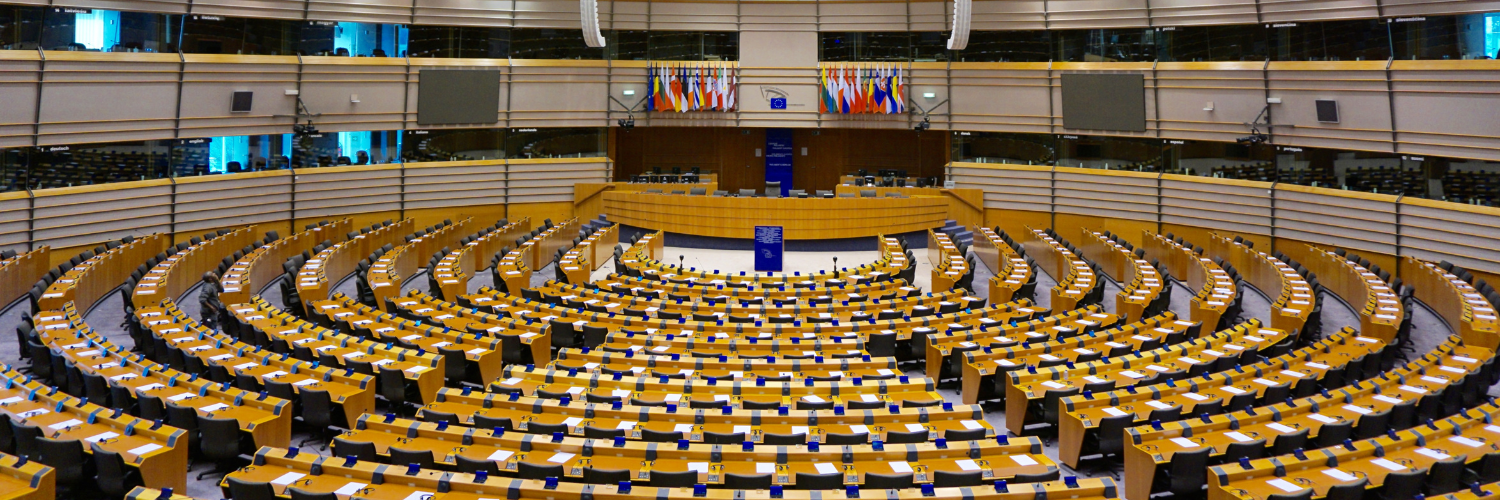
First legal cannabis available from Cannabis Clubs.

In the first half of 2025, a vote on the law (or parts of it) on Pillar 2 is expected in the Bundesrat.
Possibly as early as Q4/2024, but possibly not before Q1/2025, the draft law on the second pillar (pilot projects) can be expected to be passed; possible publication in the Federal Law Gazette. This would then also start the licensing process for pilot projects (via federal/state authorities); likely to take several months.

In September 2025, the next German Bundestag will be elected for the 21st legislative period. A newly elected government may be more critical of legalization.
Launch of first pilot projects and legal dispensing of cannabis in licensed stores.


Possible time periods for evaluations of the laws:
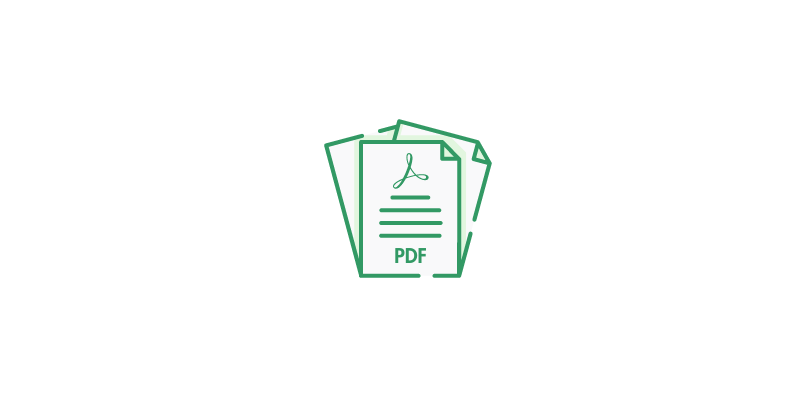
Infographic
Download Timeline as Infographic (PDF):
Glossary
1) Coalition Agreement:
“We are introducing the controlled dispensing of cannabis to adults for consumption purposes in licensed stores. This will control quality, prevent the transfer of contaminated substances and ensure the protection of minors. We will evaluate the law after four years for social impact. Drug checking models and harm reduction measures will be enabled and extended.” (Find the Coalition Agreement online here.)
2) Cornerstone Paper (Key Issues):
The Cornerstone Paper (or: Key Issues Paper) is the basis for a draft bill. It is prepared in consultation with all relevant federal ministries. As the name suggests, the paper sets out the most important key points of the planned bill. It often does not go into detail and is usually much less extensive than a draft bill. After a general approval of the Cornerstone Paper by the Federal Cabinet, the key points will be transferred into a more detailed draft bill by the responsible ministries.
3) Draft bill:
A draft bill is the fully formulated text of a law submitted to the legislative bodies for deliberation and voting. Until the final vote, the title of the legislative text is “draft bill”. A draft bill is going through several stages during the political process:
4) EU Notification Procedure (according to (EU) Guideline 2015/1535):
The term “notification” describes a procedure in which EU member states inform the European Commission, and in some cases also other member states about a legal act before it can take effect as national legislation. This is the case when it comes to legal acts relevant to the EU Single Market (Binnenmarkt). While the EU Commission is reviewing the legal act, the member state is prohibited from implementing the act in question. This “standstill period” can last from three to six months.
5) Bundesgesetzblatt / Final bill:
Once the bill is adopted, it will be published in the Federal Law Gazette (Bundesgesetzblatt). Now, for the first time, citizens can read the binding legal text in its final form. Corrections are no longer possible – except via a completely new legislative procedure. The Bundestag decides whether a law enters into force immediately on the day after promulgation, at a later date or even retroactively. This depends entirely on the content of the regulation.
Sources:
https://www.spd.de/fileadmin/Dokumente/Koalitionsvertrag/Koalitionsvertrag_2021-2025.pdf
https://www.bundesrat.de/DE/aufgaben/gesetzgebung/verfahren/verfahren.html
https://www.bundestag.de/parlament/aufgaben/gesetzgebung_neu/gesetzgebung/weg-255468
Photos used (unless otherwise stated): Unsplash.com, Canva.com

Infographic
Download Timeline as PDF:
Glossary
1) Coalition Agreement:
“We are introducing the controlled dispensing of cannabis to adults for consumption purposes in licensed stores. This will control quality, prevent the transfer of contaminated substances and ensure the protection of minors. We will evaluate the law after four years for social impact. Drug checking models and harm reduction measures will be enabled and extended.”
2) Cornerstone Paper (Key Issues):
The Cornerstone Paper (or: Key Issues Paper) is the basis for a draft bill. It is prepared in consultation with all relevant federal ministries. As the name suggests, the paper sets out the most important key points of the planned bill. It often does not go into detail and is usually much less extensive than a draft bill. After a general approval of the Cornerstone Paper by the Federal Cabinet, the key points will be transferred into a more detailed draft bill by the responsible ministries.
3) Draft bill:
A draft bill is the fully formulated text of a law submitted to the legislative bodies for deliberation and voting. Until the final vote, the title of the legislative text is “draft bill”. A draft bill is going through several stages during the political process:
4) EU Notification Procedure (according to (EU) Guideline 2015/1535):
The term “notification” describes a procedure in which EU member states inform the European Commission, and in some cases also other member states about a legal act before it can take effect as national legislation. This is the case when it comes to legal acts relevant to the EU Single Market (Binnenmarkt). While the EU Commission is reviewing the legal act, the member state is prohibited from implementing the act in question. This “standstill period” can last from three to six months.
5) Bundesgesetzblatt / Final bill:
Once the bill is adopted, it will be published in the Federal Law Gazette (Bundesgesetzblatt). Now, for the first time, citizens can read the binding legal text in its final form. Corrections are no longer possible – except via a completely new legislative procedure. The Bundestag decides whether a law enters into force immediately on the day after promulgation, at a later date or even retroactively. This depends entirely on the content of the regulation.